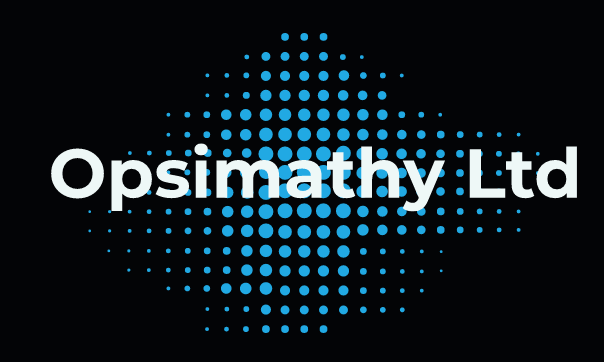
The European Union’s Artificial Intelligence Act (AI Act), which came into force on August 1, 2024, represents a pioneering effort to regulate AI technologies comprehensively. The Act introduces a risk-based framework, categorizing AI applications into four levels: unacceptable, high, limited, and minimal risk. Unacceptable-risk applications are banned, high-risk applications face stringent compliance requirements, limited-risk applications have transparency obligations, and minimal-risk applications are mainly unregulated. The Act also addresses general-purpose AI, imposing transparency requirements and additional evaluations for high-capability models.
While the United Kingdom, having exited the EU, is not directly bound by the AI Act, the legislation’s extraterritorial scope means it affects any AI systems entering the EU market or impacting EU individuals, regardless of the provider’s location. Consequently, UK companies operating within the EU or offering AI-related products or services must adhere to the AI Act’s provisions.
In contrast to the EU’s comprehensive regulatory approach, the UK has adopted a more flexible, pro-innovation stance toward AI regulation. The UK’s framework emphasizes cross-sector, outcome-based principles, granting existing regulators the discretion to apply them within their respective domains, such as transportation or financial markets. This strategy aims to foster innovation while ensuring safety and ethical standards.
However, this divergence in regulatory philosophies may lead to complexities, especially for UK businesses operating across both jurisdictions. For instance, under the Windsor Framework, Northern Ireland remains subject to specific EU laws, including the AI Act. This results in differing AI regulations between Northern Ireland and the rest of the UK, which could create challenges for businesses navigating compliance requirements in both regions.
Moreover, the EU’s AI Act is expected to influence global AI governance, potentially setting standards beyond its borders. This global ripple effect may prompt the UK to align its regulations more closely with the EU to facilitate market access and ensure interoperability.
In summary, while the UK’s current regulatory approach to AI differs from the EU’s, the extraterritorial impact of the AI Act and the interconnected nature of digital markets necessitate careful consideration by UK businesses and policymakers. Balancing innovation with compliance will be crucial to maintaining competitiveness and ensuring ethical AI deployment.
Impact on the UK
1. UK Companies Operating in the EU Must Comply
Despite Brexit, UK businesses that develop or deploy AI systems in the EU must comply with the AI Act. This includes UK-based AI firms offering services to EU clients, requiring them to adapt their AI governance frameworks to meet EU standards.
2. Northern Ireland and the Windsor Framework
Due to the Windsor Framework, Northern Ireland remains aligned with specific EU regulations. However, suppose AI applications in Northern Ireland are classified under the AI Act’s remit. In that case, businesses operating in the region may have to comply with EU AI regulations, unlike those in the rest of the UK. This divergence in AI governance could create regulatory complexity for businesses operating across the UK.
3. Regulatory Divergence Between the UK and the EU
The UK government has opted for a more pro-innovation, light-touch approach to AI regulation, focusing on outcome-based principles rather than strict compliance measures. Unlike the EU’s AI Act, the UK’s approach grants sector-specific regulators the flexibility to enforce AI rules tailored to their industries.
This divergence may impact UK firms seeking to scale AI innovations internationally. Companies developing AI solutions that comply with UK regulations may still need modifications to enter the EU market, increasing compliance costs and administrative burdens.
4. Influence on UK AI Policy
While the UK’s regulatory framework currently differs from the EU’s, the global influence of the AI Act could push the UK to align more closely with EU standards. Industry leaders advocating for regulatory consistency may pressure the UK government to introduce AI regulations that facilitate cross-border AI trade and avoid market fragmentation.
5. Potential Business and Investment Implications
- Startups and AI Firms: UK-based AI startups may struggle to navigate dual regulatory frameworks if they wish to operate in the UK and EU.
- Investment Considerations: Investors may favour AI companies that align with EU regulations, as compliance with the AI Act ensures easier market access.
- Competitive Edge: UK companies prioritizing ethical AI and proactive compliance may gain an advantage in securing contracts with EU-based clients.
Conclusion
The EU’s AI Act is set to shape AI governance globally. While the UK has taken a different regulatory path, the Act will undoubtedly influence AI-related business decisions. UK companies operating in the EU must comply with the AI Act, and businesses within Northern Ireland may face additional compliance requirements due to the Windsor Framework. As AI regulation evolves, UK firms and policymakers must navigate these changes strategically to maintain competitiveness in the international AI landscape.
What’s Next? UK businesses should start preparing for AI compliance by assessing their AI deployment risks, establishing governance frameworks, and staying updated on AI regulatory developments. Whether the UK eventually aligns with EU AI regulations or maintains its independent approach, adaptability will be key to future success in the AI sector.


